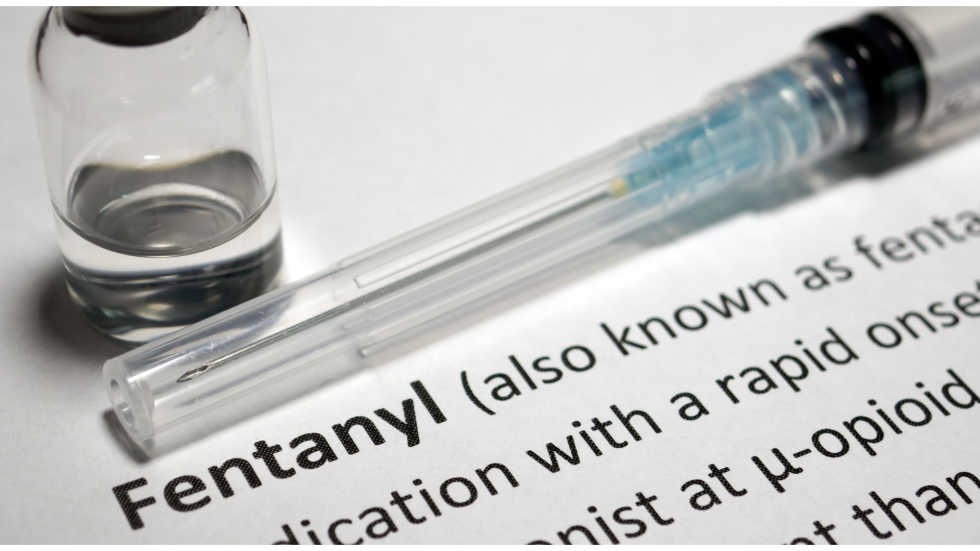Dazed and Confused: What’s Going On With Georgia’s Marijuana Laws?
Why are Republicans giving the Left an easy win?
After an eight-year crusade championing low-dose THC legislation, Georgia Republicans are now on the verge of turning pharmacies into THC treasure troves. Meanwhile, the Drug Enforcement Administration (DEA) is slamming the brakes, declaring it a legislative no-go zone rather than a joint (full pun intended) effort.
Georgia stands out in the ever-evolving landscape of marijuana legalization by becoming the first state to permit low-dose THC oil in private pharmacies to treat certain chronic illnesses. Adding intrigue to the ever-controversial nature of drug legalization, sealed court records and a commission that operates behind closed doors continue to block the public from viewing the cannabis license applications—even in the face of foul play allegations by companies who were denied a license.
The peculiar saga of medical marijuana in Georgia is rooted in the Hailey’s Hope Act, signed by former Georgia Gov. Nathan Deal (R) in 2015. Fast forward to 2019, medical cannabis began to take off with Republicans’ HB 324, which set the stage for cultivation and dispensing licenses in the state.
The bill also authorized the Georgia Access to Medical Cannabis Commission to greenlight six licenses, enabling a new chapter in this ever-evolving story.
For three years, no one was awarded a license; but eventually licenses were awarded to Botanical Sciences, a new company formed in 2020, and Trulieve, a preexisting company with dispensaries in nine states. Nearly a year later, the final four were awarded to Fine Fettle, TheraTrue Georgia, Natures Georgia and Treevana Remedy.
The six licenses opened the door for Georgia to sustain its own medical cannabis industry, but due to the peculiar nature of selling low-dose THC in private pharmacies and the ongoing secrecy around the license applications, many questions remain unanswered in this Republican-sponsored tale.
New Dealers on the Block
Nearly 120 pharmacies have agreed to provide low-dose THC oil to customers in Georgia so far. The applications were authorized by a joint coalition of the Georgia Board of Pharmacy, Georgia Access to Medical Cannabis Commission, and rules approved by Georgia Gov. Brian Kemp (R).
The low-dose oil will only be authorized for customers with severe illnesses including seizures, terminal cancers, Parkinson’s disease and post-traumatic stress disorder who register with the Georgia Department of Health after consulting a primary care physician. Medical cannabis legalization in Georgia originates with Haleigh Cox (hence Haleigh’s Hope Act), a child who suffered from chronic seizures and was forced to relocate to Colorado.
The low-dose oil will be limited to a concentration of 5 percent THC and cannot be sold in a smokable or edible form. Estimates put 90 percent of Georgians within 30 minutes of a pharmacy that will sell low-dose oil, according to Botanical Sciences.
“Pharmacists are a trusted provider, and it’s a way for us to destigmatize this new medicine,” said Mindy Leech, a pharmacist and the owner of Lee-King Pharmacy in Newnan. “It will make people more comfortable if they want to come in and ask questions about it.”
There are nearly 400 private pharmacies in Georgia that will be able to service an estimated 14,000 Georgians who qualify for low-dose THC oil. The number is significantly lower than the estimated 50,000 Georgians that the Georgia Department of Public Health initially estimated.
Though the ability for qualified patients to purchase necessary medication is a stride for Georgia, especially considering stories like Haleigh Cox, there are many questions about selling a Schedule 1 drug, predominantly associated with recreational use, in private pharmacies.
Many states that allow the sale of either medical or recreational cannabis in dispensaries have zoning requirements. Local zoning codes often limit dispensaries from being near a school, a public park or other federally regulated buildings.
Since the participating pharmacies are already established as brick-and-mortar stores, it may be hard to comply with the proper zoning ordinances.
For example, Oklahoma state law dictates that no retail marijuana establishment can set up shop within 1,000 feet of any public or private school entrance. In left-wing California, “no medicinal cannabis cooperative, collective, dispensary, operator, establishment, or provider who possesses, cultivates, or distributes medicinal cannabis pursuant to this article shall be located within a 600-foot radius of a school.”
Alongside possible zoning issues, private pharmacies in Georgia are running into compliance issues with the DEA. Unlike many dispensaries that are state regulated, private pharmacies land under federal jurisdiction.
In November, the DEA reminded Georgia’s private pharmacies that it is still illegal under federal law to sell THC products.
“All DEA registrants, including DEA-registered pharmacies, are required to abide by all relevant federal laws and regulations,” the DEA wrote in a letter to the pharmacies. “A DEA-registered pharmacy may only dispense controlled substances in Schedules II-V of the Controlled Substances Act. Neither marijuana nor THC can lawfully be possessed, handled, or dispensed by any DEA-registered pharmacy.”
The DEA may have trouble enforcing regulation on marijuana in Georgia, as a congressional budget rider enacted in 2014 prevents the Department of Justice (DOJ) from spending resources interfering with the implementation of state medical marijuana laws.
Veil of Secrecy
The process for awarding the 6 coveted marijuana licenses in Georgia has remained secret, and no one seems sure why.
After the Georgia Access to Medical Cannabis Commission and the Georgia Department of Agriculture began to award licenses, numerous companies that were denied a license began claiming the licenses were issued to companies that should have been disqualified, according to the Georgia First Amendment Foundation (GFAF), a group that advocates for free expression and information.
“The members of the Medical Cannabis Commission knew who the owners were of these companies, who the companies were affiliated with, and they scored in an arbitrary and frankly sometimes nonsensical way,” said attorney Kristen Goodman who represented a coalition of the rejected applicants.
Yet Restoration News can’t verify these claims, since the Georgia Access to Medical Cannabis Commission operates in secret due to a partial exemption to the Georgia Open Records Act authorized by the Hope Act.
The winning companies are further protected from any public scrutiny or oversight, as they are allowed to redact trade secrets in their applications. One company’s application is more than 97 percent redacted. That firm, Treevana Remedy Inc., even blocks out the company owner’s biographical information. In total, only 51 pages of the 2,067 page document are visible to the public.
When the losing companies filed complaints before the Georgia Office of State Administrative Hearings, the administrative court chose to seal all records without public hearing or any justification.
GFAF filed a brief to open the proceedings but was ignored. The group further filed a motion to unseal in the Fulton Superior Court.
“We want to ensure all citizens of Georgia have access to information about what’s happening with the award of these lucrative licenses, especially given complaints that the process may have been tilted.” wrote Richard T. Griffiths, president emeritus of the GFAF.
Many of the applicants have protested GFAF’s attempts to unseal the records. One of the companies, Curaleaf, argued in a court filing that “the business interests in maintaining the seal on the ALJ [administrative law judge] hearing records . . . outweighs any potential interest of the general public in unsealing the documents.”
In May 2023, GFAF petitioned the supreme court of Georgia to release the “judicial records related to disputes between companies that won and lost licenses to manufacture medical cannabis in Georgia.”
In October, the supreme court of Georgia decided to not review the lower court’s ruling to indefinitely seal the records.
“If this secrecy is allowed to stand, it will erode our trust in the institutions we all rely on and pay for. Transparency engenders confidence in our government and our courts. Without that confidence, without that public trust, things fall apart.” Griffiths continued.
Governor Hemp
Marijuana in the form of low-dose THC oil was first legalized in Georgia following the Haleigh’s Hope Act (House Bill 1), Signed by former Georgia Gov. Nathan Deal (R). The law was a response to Haleigh Cox, a child who suffered from chronic seizures and was forced to relocate to Colorado for treatment.
The initial act did not open the door for cultivation, licensing, and dispensing, and only allowed immunity for registered patients or caregivers.
In 2017, SB 16—sponsored by six Republicans and one Democrat—expanded on the Haleigh’s Hope Act by adding additional diseases covered by the law. The list was opened to Alzheimer’s disease, Tourette’s syndrome, AIDS, and autism. The law also authorized patients with medical marijuana cards from other states to possess low-dose THC oil in Georgia for up to 45 days.
Two years later, HB 324—also sponsored by six Republicans and one Democrat—was enacted as an amendment to the Haleigh’s Hope Act. The act renamed the law to the Georgia’s Hope Act and opened the door for low-THC oil producers, dispensaries, and medical marijuana cultivators.
Two licenses were created to allow indoor cultivation of cannabis in an area of up to 10,000 square feet (Class 1 license) and indoor cultivation of up to 50,000 square feet (Class 2 license). The law further allowed universities to conduct research on marijuana and partner with licensed growers, but blocked physicians from owning stakes in low-THC oil businesses.
In 2021, Kemp signed SB 195 into law, which was sponsored by two Republicans. The bill expanded the allowed forms of medical marijuana to include low-THC tinctures, capsules, skin patches, and lotions. That law also empowered the Georgia Board of Pharmacy to work with the Georgia Access to Medical Cannabis Commission to issue dispensary licenses.
Demand Transparency
Medical cannabis in Georgia is a complex issue that conservatives are continuing to debate. What is clear is that the way the policy’s unfolded in Georgia is disturbing. Why are legislative Republicans spearheading drug legalization, and by these underhanded methods?
Georgians deserve to know the truth.



